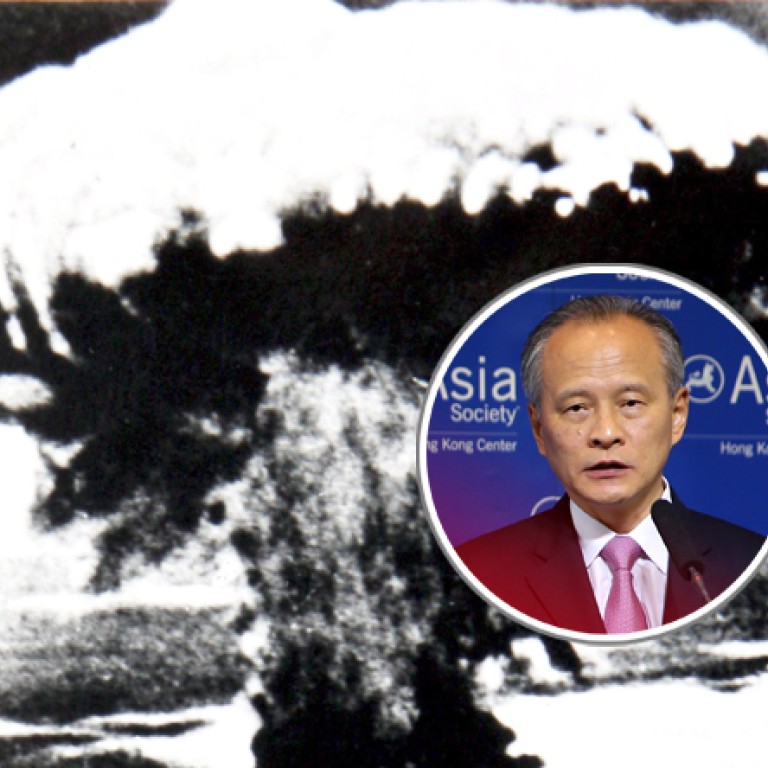
Japan's second world war defeat was not just due to the atomic bomb, says China
Chinese Ambassador Cui Tiankai tells forum of 'dangerous' view by Japanese politicians
Japan should realise it was defeated in 1945 “not just” by atomic bombs and thus not challenge the post-second world war order, China’s ambassador to Washington said on Tuesday.
Amid high tensions between China and Japan, Ambassador Cui Tiankai said that such historical perceptions “may be the most important issue” between Asia’s two largest economies.
Cui, addressing a forum, criticised as “very wrong and dangerous” a view by “a few politicians” in Japan that their country was forced to surrender in 1945 solely because of the nuclear attacks on Hiroshima and Nagasaki.
“They believe that if you don’t antagonise the United States, everything would be okay for them, they don’t have to take care of the concerns of other countries,” he said at Johns Hopkins University’s School of Advanced International Studies.

“I think politicians in Japan have to realise this is the post-second world war international order. You cannot challenge that,” he said.
Historical issues remain a major sore spot in East Asia, with many Chinese and Koreans accusing Japan of insufficient remorse for its past expansionism in other Asian nations.
Japan has apologised for causing “tremendous damage and suffering” in the 20th century, leading some officials in Tokyo to accuse Beijing and Seoul of intentionally keeping tensions on a simmer.
Japan, officially pacifist since the war, has been seeking a permanent seat on the UN Security Council, whose makeup reflects power dynamics in 1945. China, now the only Asian nation with veto power, has adamantly opposed Japan’s bid.
Japanese Prime Minister Shinzo Abe, who is known for his conservative views on history, has vowed not to cede any sovereignty over islands in the East China Sea claimed by Beijing.
Japan reverently observes the anniversaries of the bombings of Hiroshima and Nagasaki, which together killed more than 200,000 people. In May, Japan lodged a protest when a South Korean newspaper called the world’s only atomic bombings “divine punishment”.

.png?itok=arIb17P0)